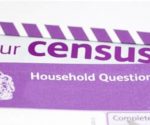On organised “not paying”
Evidently there is a “Don’t Pay” movement where people are being encouraged not to pay energy bills. Don’t be surprised, reader, that the author doesn’t want to bother looking into it, especially if you’ve seen it implied, if not overtly written in these pages that the only way a movement can’t be controlled is if it is one comprising of unconnected individuals fighting their own battles without orchestration or organisation from a centre. Anyway, this site has no influence over an alternative media audience that likes to get taken up the garden path and have its trousers taken down.
The only offering that can be given is a warning: with energy bills, there is no “not paying”. If people don’t know what they’re doing when they don’t pay energy bills, they’ll end up on a prepayment meter, and they’ll have no choice but to pay for their energy. In fact, given that government targets for all meters in Britain to be of the new generation are ones that are not being met, it wouldn’t be a surprise to the author if making people liable to enforced smart meters is the objective of this rabble rousing. And if the people behind it are telling folk that it’s ok not to pay because the enforcers can’t come after everyone, then they’re being disingenuous, because the enforcers will come after some, and then some more after that, and keep doing it so that “some” are always being come after. With energy bills, reader, paying them is not the issue. Instead, the issue is about paying on terms most favourable to you.
Reader, you may have seen articles at this site advocating for non payment of charges and taxes as part of an idea about not releasing wealth to those who see you as temporary storage for it. However, this site has never promised that you can always, or even ever get away with it scot free – see, Not Paying, Part One: Remember No Taxation Without Representation? It’s Making A Comeback, for instance. There should be understanding that in the system in which we live, if one doesn’t pay, one can make oneself liable to owe more in the end, whether this be financial or in some other form. So, the realistic objective of not paying is to cause a problem, and towards the most effective end possible (and in the article, In Which We Notice Plato Referring To The Link Between Freemasonry And Government, there is a little reference to what is meant by that). If enough people are conducting themselves in this way, then each problem compounds the other in the organisation that is hosting them so that there may be debilitating failure.
Incidentally, the author is now in a constant struggle with his energy supplier which is determined to install smart meters, and which has done much conniving and gone to great and perhaps even criminal lengths to do this. The ombudsman is about to be made aware of the situation, and the smart meters are still not fitted. (There’s other specific “not paying” activity and actions that the author is engaged in and could report, but the alternative media audience is clearly not interested).
On the other hand, and especially because the author never sees much evidence of this being a thing with the alternative media audience, it must be said that there are ways, in actuality, that one can “not pay” without expectation of penalisation by an enforcer, and it merely involves choosing the best way to spend and to do it so that it is empowering. The author couldn’t resist looking for this particular information, and sees that the Don’t Pay campaign has raised £15,016 from donations so far, and is not surprised, because like any number of these activism campaigns that spring fully formed from the ground, at the crux of the issue is whether or not people can invest to empower themselves, or more likely not.
The Don’t Pay people, the author also fleetingly notices, say that after they collect the email addresses of 1 million subscribers (read the small print, folks, because that’s a million pieces of information that someone would pay handsomely for), it will demand negotiations with energy companies and government (or something along those lines) or else those who have registered to be represented in this way will cancel their direct debits. Obviously appealing to the stick-up-the-arse type who would be happier in delegating their corners for others to fight for them, to the point that they’d pay for it, there’s surely plenty of fish to fry for the people behind this – whoever they are. Moreover, their punters will have no concept that the Poll Tax rebellion, which forced Thatcher’s Tories to invent the Council Tax instead – and which is being cited as previous example that points to the potential success of this enterprise – was more than likely just all part of the plan.


















